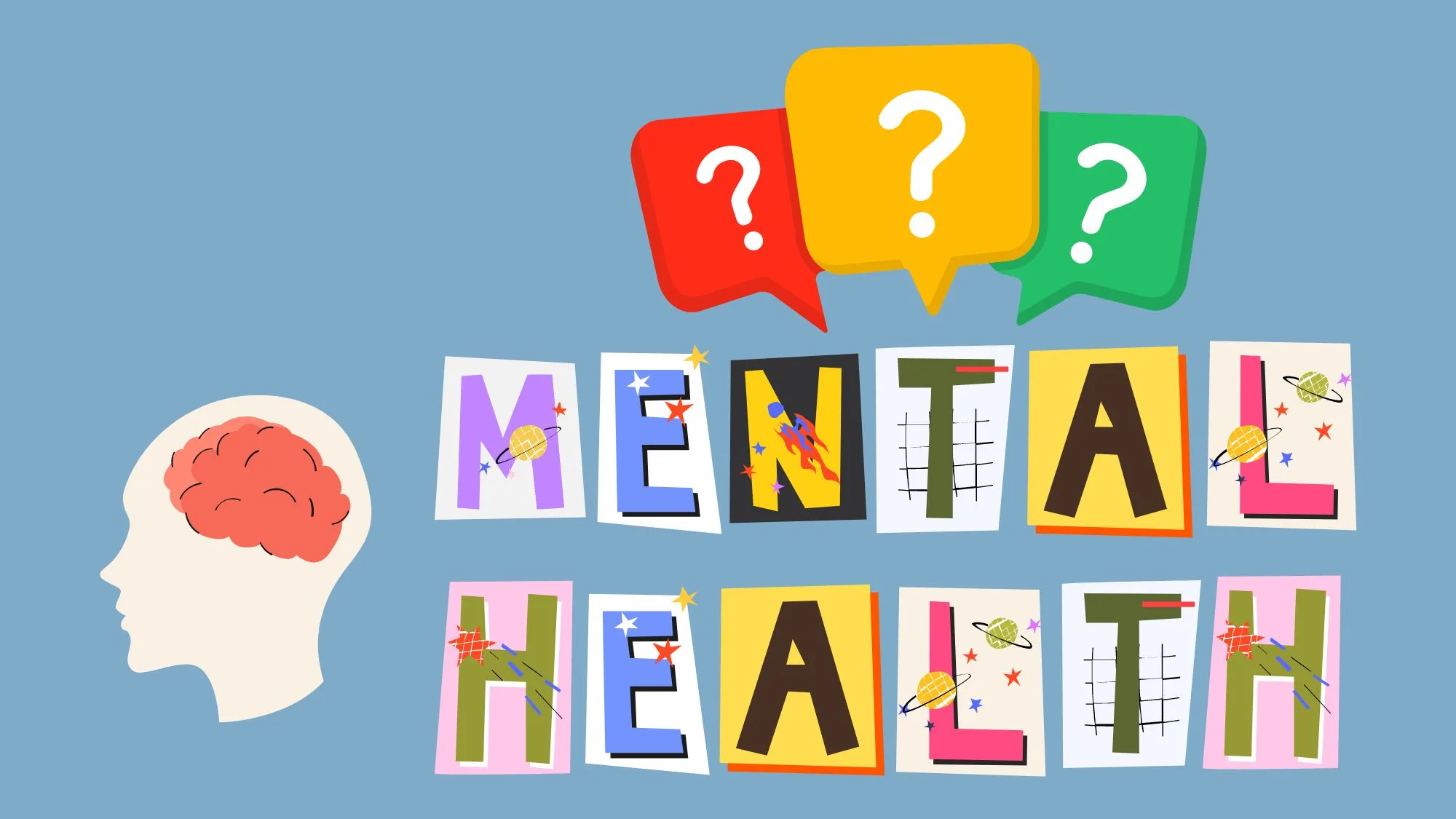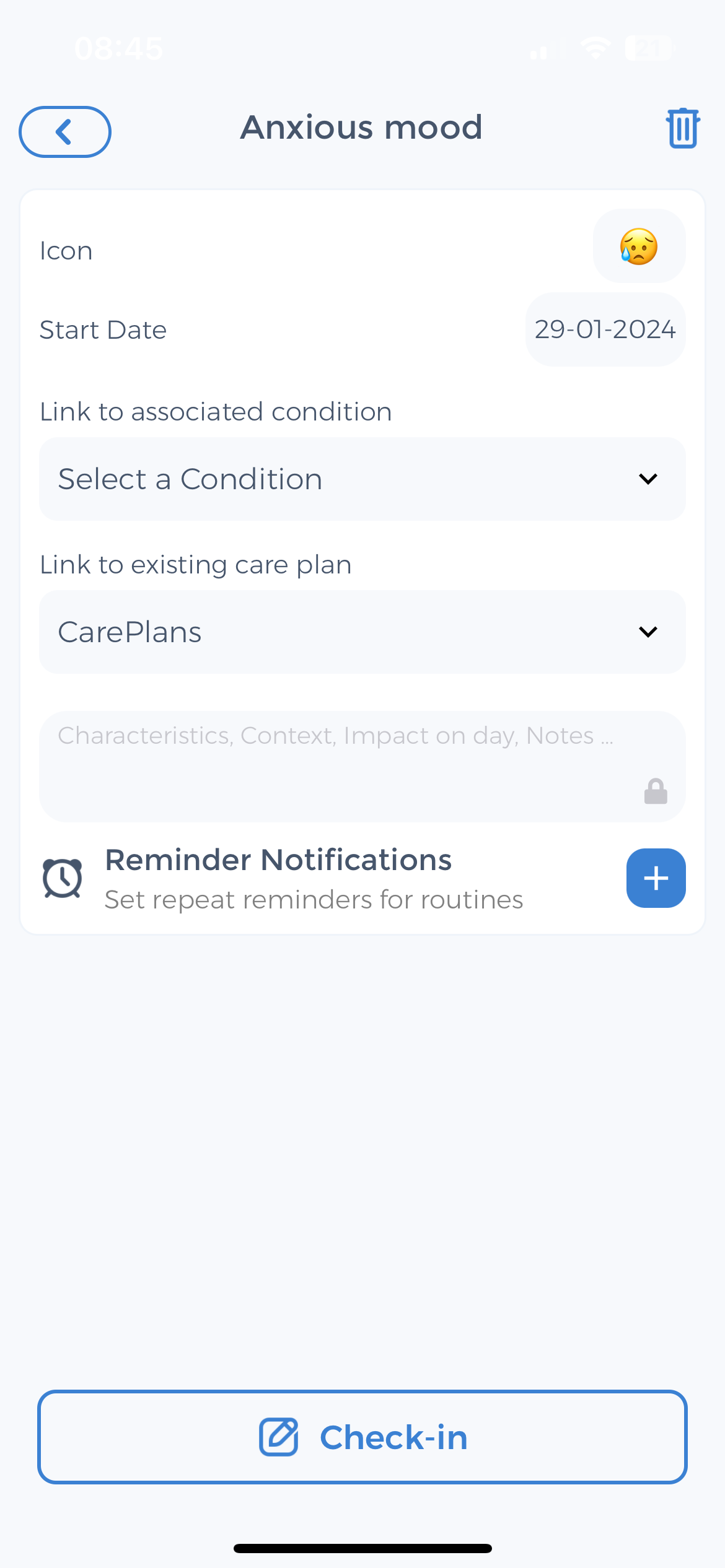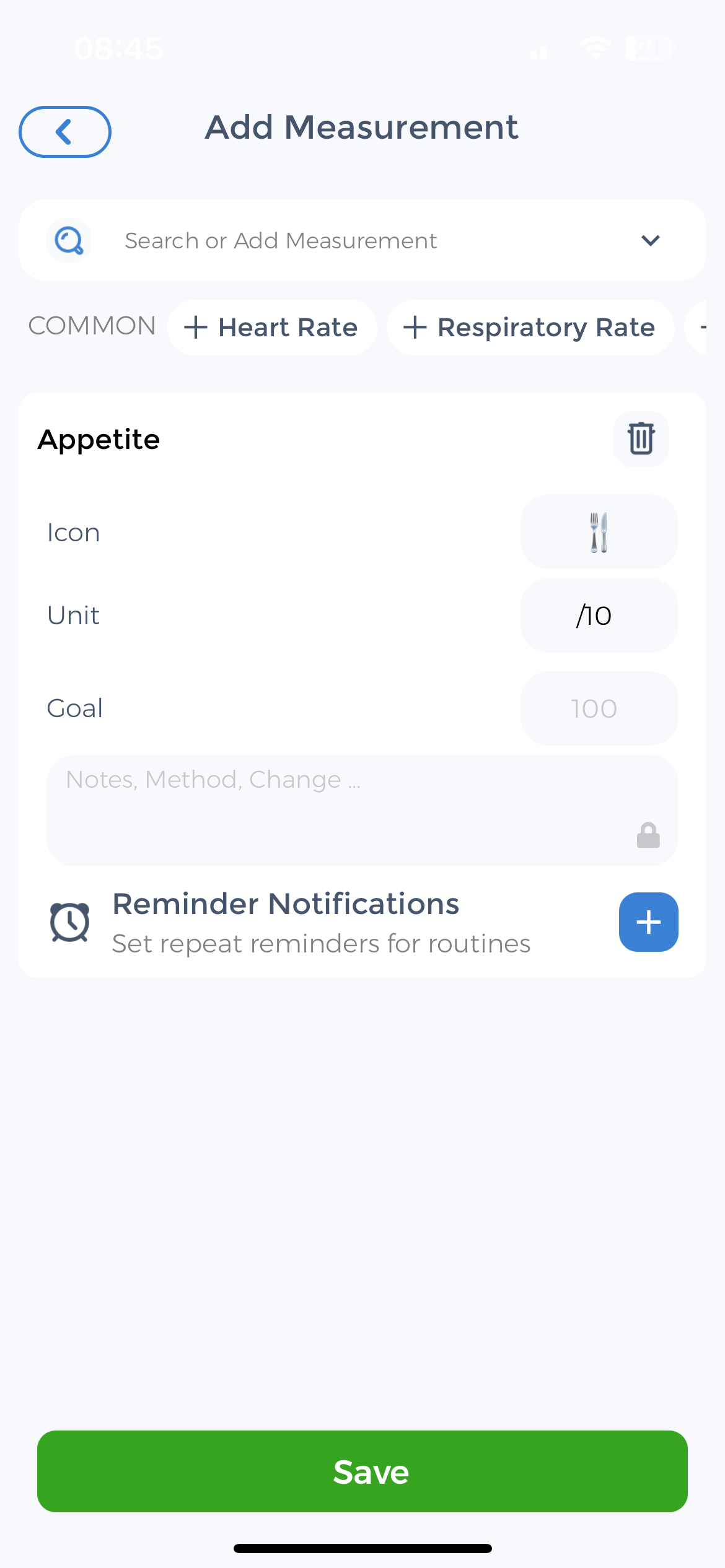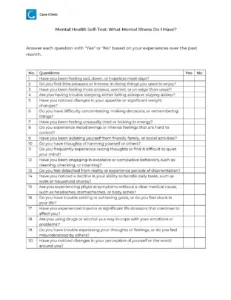
If you find yourself questioning your mental health, you may be wondering, “What mental illness do I have?” It’s natural to seek answers and gain a better understanding of your mental well-being. One popular tool that can help in this process is this “What mental illness do I have?” quiz.
In this article, we will explore the purpose of mental health quizzes, the different types of mental illnesses, the components of a mental health quiz, when to seek professional help, and tips for maintaining your mental health.
Understanding the Purpose of Mental Health Quizzes
Mental health quizzes serve as a self-assessment tool to help individuals gain insights into their psychological well-being. By answering a series of questions, these quizzes provide a preliminary indication of potential mental health concerns. It is important to note that mental health quizzes are not a substitute for professional diagnosis, but rather offer an opportunity for self-reflection and awareness.
The Role of Self Assessments in Mental Health
Self-assessment plays a significant role in mental health as it allows individuals to reflect on their emotions, thoughts, and behaviors. By engaging in self assessments, you can identify patterns, triggers, and areas of improvement. Mental health quizzes can promote self-awareness, providing a starting point for further exploration and potential intervention if necessary.
Limitations and Misconceptions about Mental Health Online Quizzes
 While mental health quizzes can be helpful, it is essential to recognize their limitations. These quizzes are not meant to provide a definitive diagnosis, as only a qualified healthcare professional or doctor can determine and assess that. Additionally, mental health quizzes should be used in conjunction with other forms of assessments and should not replace seeking professional help if needed. It is essential to approach these quizzes with an open mind, understanding that they are only one piece of the mental health puzzle.
While mental health quizzes can be helpful, it is essential to recognize their limitations. These quizzes are not meant to provide a definitive diagnosis, as only a qualified healthcare professional or doctor can determine and assess that. Additionally, mental health quizzes should be used in conjunction with other forms of assessments and should not replace seeking professional help if needed. It is essential to approach these quizzes with an open mind, understanding that they are only one piece of the mental health puzzle.
Furthermore, mental health quizzes can be a valuable tool for individuals who may be hesitant to seek professional help or are unsure if they need it. These quizzes provide a safe and private space to explore one’s mental well-being without the pressure of face-to-face interactions. They can serve as a stepping stone towards seeking professional help, as they may help individuals recognize the need for further evaluation or support.
Moreover, mental health quizzes can also be used as a preventive measure to maintain overall well-being. Regularly engaging in self assessments can help individuals identify early warning signs of mental health issues and take proactive steps to address them. By catching potential concerns early on, individuals can implement coping strategies, seek appropriate support, and prevent the escalation of symptoms.
Printable Mental Illness Online Screening
⬇️ Mental Illness Quiz PDF Printable
Different Types of Mental Illnesses: Crisis Lifeline
Mental illnesses encompass a wide range of conditions, each with its own unique symptoms and characteristics. It is important to remember that mental health is a complex field, and individuals may present with varying degrees and combinations of experiencing symptoms. Understanding the different types of mental illnesses can help us better support and empathize with those who are affected.
Let’s explore some common mental disorders:
- Depression: Persistent feelings of sadness, hopelessness, and a loss of interest in activities. Depression affects millions of people worldwide and can have a profound impact on their daily lives.
- Anxiety: Excessive worry, fear, and feelings of unease. Anxiety disorders can manifest in various ways and aspect, such as generalized anxious feeling disorder, panic disorder, and social anxiety disorder.
- Bipolar disorder: Severe mood swings, ranging from depression to periods of mania. People with bipolar disorder may experience intense highs and lows, making it challenging to maintain stability.
- Schizophrenia: Distorted thoughts, perceptions, and a loss of touch with reality. Schizophrenia is a complex disorder that affects a person’s thinking, emotions, and behavior, often requiring long-term treatment and support.
While these are well-known mental illnesses, there are also lesser-known conditions that can significantly impact individuals’ lives. It is crucial to shed light on these conditions and increase awareness.
Let’s delve into a few examples:
- Eating disorders: Severe disturbances in eating behaviors, often associated with body image concerns. Conditions like anorexia nervosa, bulimia nervosa, and binge-eating disorder can have devastating effects on a person’s physical and mental well-being.
- Obsessive-compulsive disorder (OCD): Intrusive thoughts and repetitive behaviors that can interfere with daily life. OCD is characterized by obsessions, which are unwanted and distressing thoughts, and compulsions, which are repetitive behaviors performed to alleviate anxiety.
- Post-traumatic stress disorder (PTSD): Develops after experiencing a traumatic event and can cause distressing symptoms. PTSD can affect anyone who has experienced or witnessed a traumatic event, such as military combat, natural disasters, or physical or sexual assault.
By recognizing and understanding the diverse range of mental illnesses, we can foster a more inclusive and supportive society. It is essential to promote empathy, education, and access to mental health resources for individuals living with these conditions. Remember, mental health matters, and everyone deserves compassion and understanding.
Components of a Mental Health Quiz
Mental health quizzes typically consist of carefully crafted questions designed to assess various aspects of mental well-being. These questions can cover areas such as mood, anxiety, social interactions, and coping strategies. Understanding the components of a mental health quiz can help you interpret the results and gain a better understanding of your mental health.
When it comes to mental health tests, the types of questions included play a crucial role in capturing the nuances of your well-being. These quizzes may include multiple-choice questions, Likert-scale questions, or open-ended questions. Multiple-choice questions offer predefined response options, allowing you to select the option that best aligns with your experiences. Likert-scale questions, on the other hand, ask you to rate statements on a scale, indicating the extent to which you agree or disagree. This allows for a more nuanced understanding of your mental health.
Lastly, open-ended questions provide an opportunity for self-expression and can offer valuable insights into your thoughts and emotions, allowing you to delve deeper into your mental well-being.
Types of Questions in Mental Health Quizzes
Mental health quizzes may include multiple-choice questions, Likert-scale questions, or open-ended questions. Multiple-choice questions offer predefined response options, allowing you to select the option that best aligns with your experiences. Likert-scale questions ask you to rate statements on a scale, indicating the extent to which you agree or disagree. Open-ended questions provide an opportunity for self-expression and can offer valuable insights into your thoughts and emotions.
Each type of question serves a specific purpose in assessing your mental health. Multiple-choice questions provide a structured format that allows you to choose from a range of options, giving you a clear framework to evaluate your mental well-being.
Likert-scale questions, on the other hand, allow for a more nuanced understanding of your mental health by capturing the degree of agreement or disagreement with specific statements. Open-ended questions, with their freedom of expression, provide a unique opportunity to explore your thoughts and emotions in a more personal and introspective manner.
Interpreting Your Mental Health Quiz Results
After completing a mental health quiz, you may receive a score or a summary that indicates potential areas of concern. It is important to remember that these results are not definitive, nor should they be taken as a diagnosis. Rather, they provide indications and raise awareness about potential areas that may require further exploration.
Interpreting your mental health quiz results requires a balanced perspective. While the results can offer valuable insights into your mental well-being, it is crucial to approach them with an open mind. If your results suggest possible mental health concerns, it is advisable to seek assistance from a mental health professional for a comprehensive evaluation. They can provide expert guidance and support, helping you navigate your mental health journey with care and understanding.
When to Seek Professional Help
While mental health quizzes can be helpful tools for self assessments, it is crucial to recognize their limitations. If you have concerns about your mental health or if your mental health quiz results indicate potential issues, it is important to seek professional help. A qualified healthcare professional, such as a psychiatrist or psychologist, can provide a comprehensive evaluation and diagnosis.
The Importance of Professional Diagnosis
A professional diagnosis is essential for accurate identification and treatment of mental health conditions. Mental health professionals undergo extensive training and have the expertise to differentiate between various disorders and develop tailored treatment plans. They can provide effective interventions, such as therapy, medication, or a combination of both, to support your mental well-being.
Resources for Mental Health Support
 There are numerous resources available to support individuals in their mental health journey. The CareClinic App, for example, offers a comprehensive platform for tracking your mental health, organizing appointments, and monitoring medication adherence. Additionally, seeking support from support groups, online communities, or helplines can provide emotional support and connect you with individuals undergoing similar experiences.
There are numerous resources available to support individuals in their mental health journey. The CareClinic App, for example, offers a comprehensive platform for tracking your mental health, organizing appointments, and monitoring medication adherence. Additionally, seeking support from support groups, online communities, or helplines can provide emotional support and connect you with individuals undergoing similar experiences.
When it comes to seeking professional help for mental health concerns, it is important to understand that you are not alone. Many individuals experience challenges with their mental well-being. There is a wealth of support available to help you navigate through these difficulties. Mental health professionals are trained to provide a safe and non-judgmental space for you to express your concerns and explore potential treatment options.
During a comprehensive evaluation, a mental health professional will take the time to listen to your experiences and gather information. About your symptoms, medical history, and any other relevant factors. This thorough assessment allows them to make an accurate diagnosis to determine and develop a personalized treatment plan that addresses your specific needs.
It is worth noting that seeking professional help is not a sign of weakness, but rather a courageous step towards prioritizing your mental well-being. By reaching out to a qualified healthcare professional, you are taking an active role in your own care and giving yourself the best chance for recovery and improved mental health.
Maintaining Mental Health
Maintaining good mental health is a lifelong journey that requires consistent effort and self-care. While professional help is invaluable, there are steps you can take at home to support your mental well-being:
Everyday Practices for Mental Well-being
- Prioritize self-care activities such as exercise, hobbies, and relaxation techniques.
- Cultivate a support network of trusted individuals who can provide emotional support.
- Practice stress management techniques, such as deep breathing or mindfulness meditation.
- Set realistic goals and celebrate small achievements.
- Engage in activities that bring you joy and provide a sense of fulfillment.
The Role of Therapy and Medication in Mental Health
Therapy and medication can be valuable components of mental health treatment. If recommended by a healthcare professional, therapy can provide a safe and confidential space to explore challenges, develop strategies how to cope up, and foster personal growth. Medication, when prescribed appropriately, can help manage symptoms associated with specific mental illnesses.
Remember, caring for your mental health is a journey unique to you. Mental health quizzes can provide a starting point for self-reflection, but they should not replace professional help if needed. Reach out to healthcare professionals and utilize resources like the CareClinic App to support your mental well-being and navigate your personal mental health journey.
Use the CareClinic App to Manage Lifestyle and Symptoms
Embark on your journey to mental wellness with the CareClinic App, a comprehensive tool designed to help you manage and track your mental health condition. By utilizing features such as symptom tracking, medication reminders, and mood logging, the CareClinic App enables you to monitor your progress and identify patterns in your mental well-being.
This data can be invaluable for both self-reflection and discussions with healthcare professionals, helping to tailor your treatment plan for optimal health outcomes.
Download the CareClinic App to Manage Mental Health Conditions
With the CareClinic App, you can take control of your mental health journey right from your device. The app’s user-friendly interface allows you to easily record your daily experiences, set reminders for therapy sessions or medications, and even share reports with your doctor.
By staying engaged with your mental health management, you’re taking a proactive step towards recovery and stability. To start enhancing your mental health today, Install App and discover the benefits of the CareClinic App.
Take A Neurodivergent Test
Discover more assessment tests focusing on neurodivergent conditions. Access them by clicking here to view the complete set of tests.



